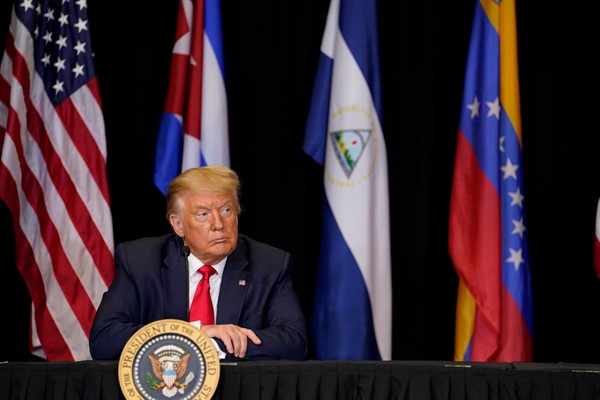When President-elect Joe Biden takes office on Jan. 20, he will inherit two types of problems from his predecessor. The first will involve repairing the damage President Donald Trump created through neglect: the alliances, partnerships, multilateral organizations and U.S. government institutions to which Trump paid too little attention the past four years. Though not negligible, these problems will in most cases be relatively straightforward to address through methodical diplomacy—the simple art of showing up.
The second category of problems has to do with the damage Trump created by paying too much attention to an issue: most of all, his campaigns of “maximum pressure” on Venezuela and Iran, which have succeeded in applying pressure, mainly through sanctions, but failed to achieve any meaningful outcomes. It will require more thought and care to unwind these failed policies without sacrificing leverage for whatever approach Biden hopes to pursue instead. Both Venezuela and Iran will also be politically fraught for the incoming administration, as any softening of America’s posture to unblock the current impasses will be portrayed by hawks in Washington as rewarding unsavory regimes that have no domestic constituencies of support in the U.S.
Of the two, Venezuela is perhaps counterintuitively the thornier problem, because it is strategically the less urgent one. The situation cannot possibly get any worse in terms of the political standoff between the regime of Nicolas Maduro and the opposition movement led by Juan Guaido, which means benign neglect will do less immediate harm. Trump’s support for Guaido was a gamble from the start. It was worth the try, but it has clearly failed. After some initial momentum, particularly in terms of international recognition of Guaido’s claim to be Venezuela’s rightful interim president, he has faded into irrelevance, while the opposition he ostensibly led has either been weakened by familiar divisions or else coopted by Maduro. The sham legislative elections in early December were clearly a farce, but in removing titular control of the National Assembly—which provided Guaido with his legitimacy—from the opposition, they also make his claim to the presidency increasingly farcical, as even opposition figure Henrique Capriles acknowledged.

